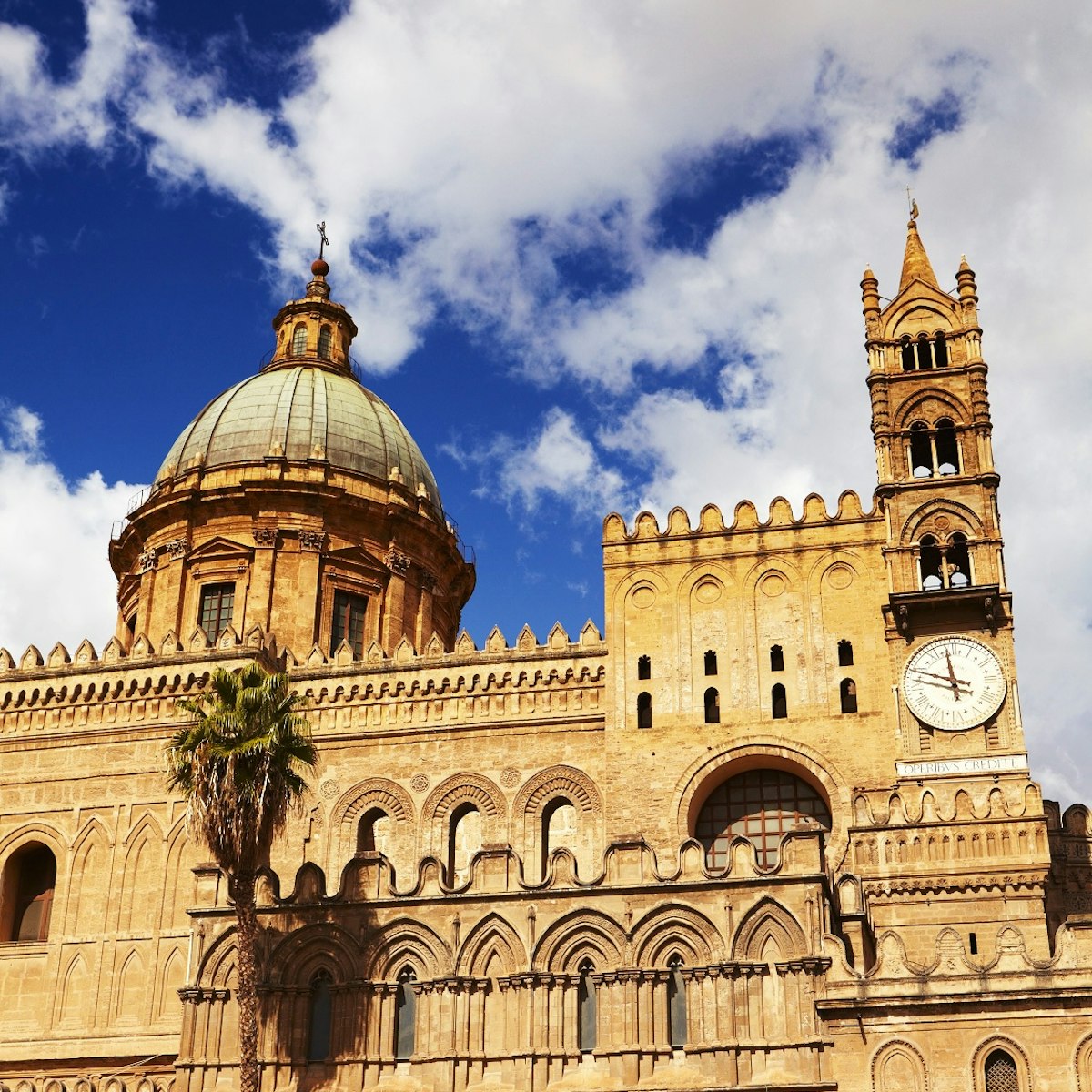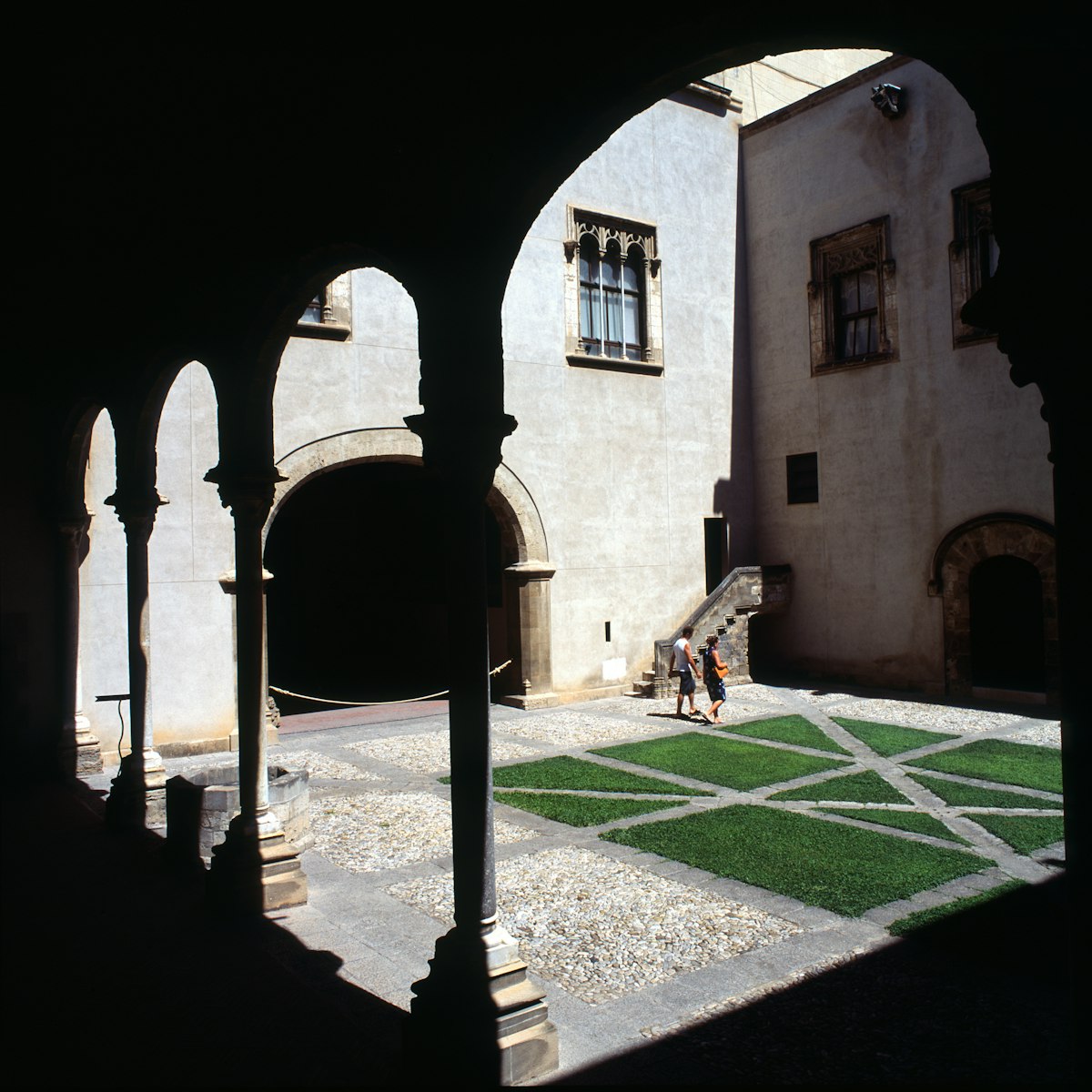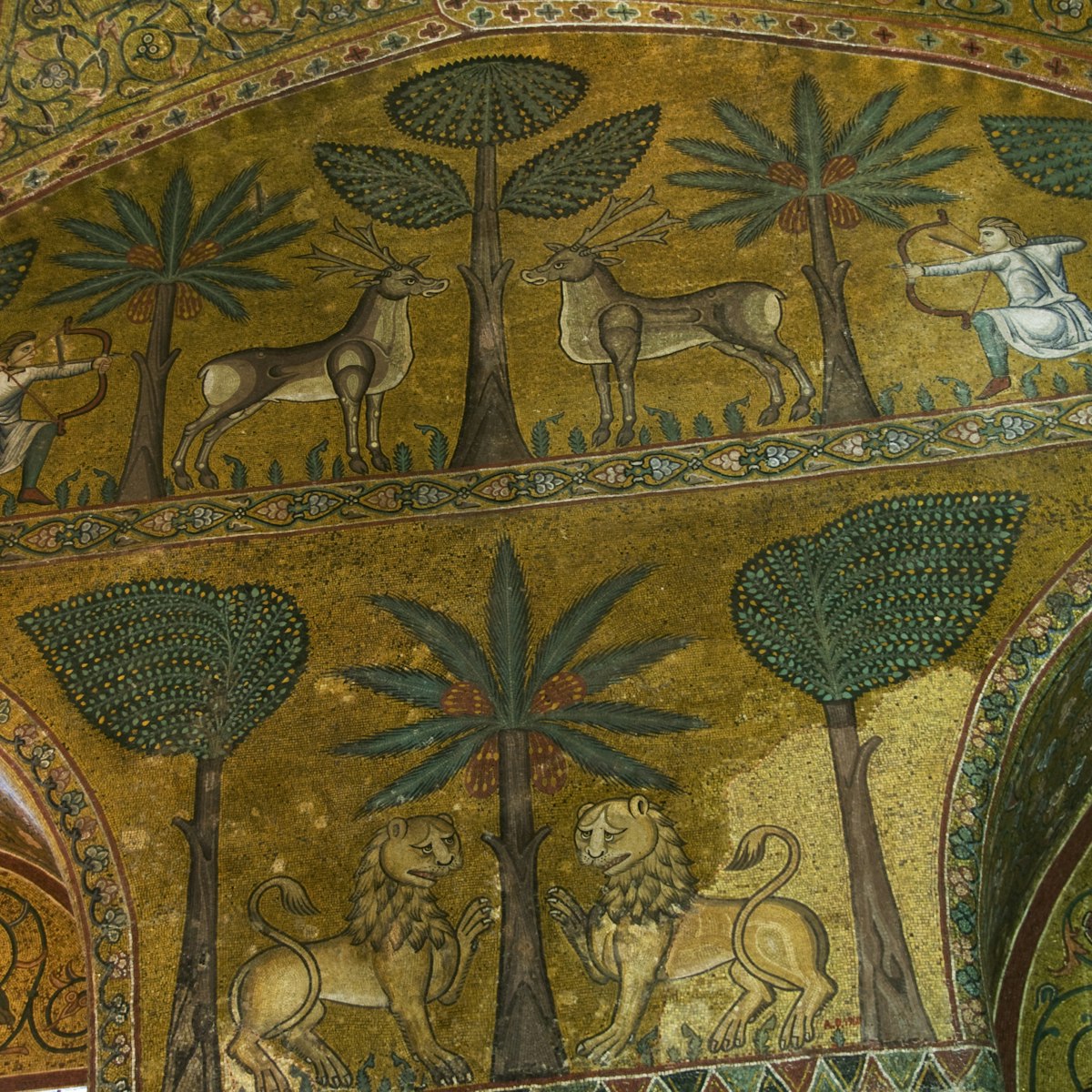Designed by Roger II in 1130, this extraordinary chapel is Palermo's top tourist attraction. Located on the middle level of Palazzo dei Normanni's three-tiered loggia, its glittering gold mosaics are complemented by inlaid marble floors and a wooden muqarnas ceiling, the latter a masterpiece of Arabic-style honeycomb carving reflecting Norman Sicily's cultural complexity.
Note that queues are likely, and you'll be refused entry if you're wearing shorts, a short skirt or a low-cut top.
The chapel's well-lit interior is simply breathtaking. Every inch is inlaid with precious stones, giving the space a lustrous quality. These exquisite mosaics were mainly the work of Byzantine Greek artisans brought to Palermo by Roger II in 1140 especially for this project. They capture expressions, detail and movement with extraordinary grace and delicacy, and sometimes with enormous power – most notably in the depiction of Cristo Pantocratore (Christ All Powerful) and angels on the dome. The bulk of the mosaics recount the tales of the Old Testament, though other scenes recall Palermo's pivotal role in the Crusades. Some of the mosaics are later and less-assured additions, for instance the Virgin and Saints in the main apse under Cristo Pantocratore. Fortunately, these don't detract too much from the overall achievement.
It's not only the mosaics you should be gazing at – don't miss the painted wooden ceiling featuring muqarnas, a decorative device resembling stalactites that is unique in a Christian church (and, many speculate, a sign of Roger II's secret identity as a Muslim). The walls are decorated with handsome marble inlay that displays a clear Islamic aesthetic, and the carved marble in the floor is stunning: marble was as precious as any gemstone in the 12th century, so the floor's value at the time of its construction is almost immeasurable by today's standards.
In case of special events, the chapel may close early or for part of the day; always check the website before heading in.








